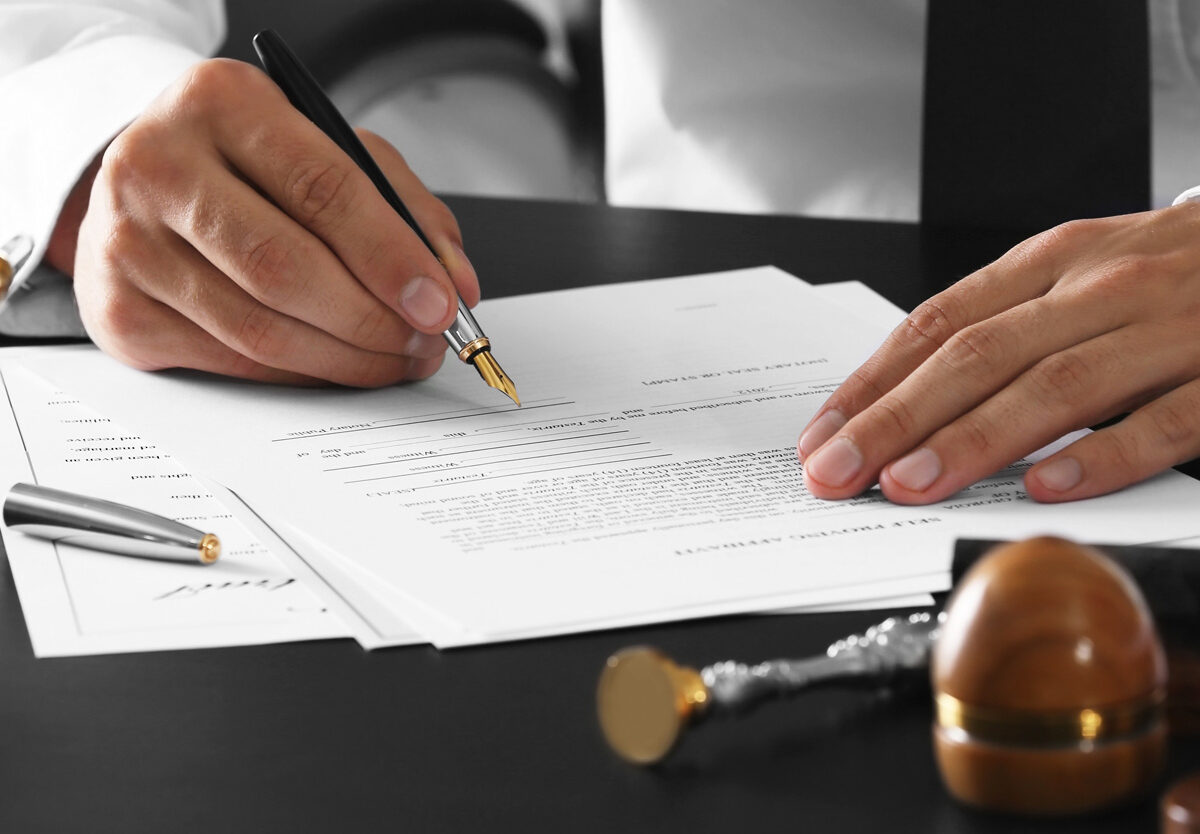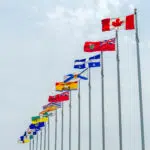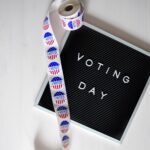Notary Public Day is celebrated on November 7 and was first observed in 1975 to recognize the service of notaries to national and international commerce. Do you know that the involvement of notaries brings legitimacy to an agreement? Yes, it does! Notaries are trusted public officials who perform several critical tasks like the signing of documents and the attestation of the identity of signing parties.
History of Notary Public Day
The practice of the notary public dates back to ancient Egypt 2750 B.C., a time when recording official transactions became important to humanity. ‘Sesh,’ or Egyptian scribes, were the earliest known chroniclers of history and official communications. Pharaoh Tutankhamen valued record keeping so much that he had writing equipment in his tomb for the afterlife. In the ancient Roman era of 1st century B.C., only a few people could read and write. Public officials were appointed to create written documents of agreement or wills and hold them for safekeeping. The first known notary was a Roman slave called Tiro, who developed a shorthand system he called ‘notae,’ for recording the famed orator Cicero’s speeches.
In medieval Europe, notaries were church officials appointed by the Pope. At the height of the Knight Templars’ power in the 2nd Century A.D., the highly educated Clergy of the Order became notaries for all their business transactions, official documents, orders, and proclamations. After England separated from the Church of Rome at the behest of Henry VIII in the 15th Century, the Archbishop of Canterbury commissioned notaries in the kingdom and her American colonies.
Notaries were an important part of the transatlantic commerce of colonization. Merchants depended on them to be independent third parties, reporting damages to the vessels or cargo in a notarial act called a ‘marine protest.’ The contributions of notaries to colonization are largely credited for the massive success of American business. Only individuals of character and high moral standing were appointed to the notary public. While they were highly respected in society, they were often caught in the deadly crossfire between conflicting camps fighting for control of the New World, for their involvement in authenticating official documents and keeping records.
The United States adopted a part of the French legal system, mostly modeled on the Napoleonic Code, when Louisiana was purchased in 1803, making the state’s legal system unique to this day. Louisiana Notaries have powers similar to those of attorneys. By the early 20th century, the President of the United States had the power to appoint notaries for a five-year term and remove them at his discretion. Today, the Mayor of the District of Columbia appoints notaries. Until that same period, American women couldn’t become notaries. According to the U.S. Supreme Court Justice Oliver Wendell Holmes Jr., since no record existed then of women holding the office in England, there was no evidence that women were capable of it. In 2021, two-thirds of the notaries in the U.S. are women.
Notaries are trusted officials who perform several tasks to help society function, and whose service we especially appreciate on Notary Public Day. Notaries serve as impartial witnesses to commercial and private transactions, bringing certainty and integrity to the transactions. Often, notaries public are involved in the signing of important documents. They would confirm the identity of the signers, acknowledge their comprehension of the document and willingness to sign it, and make sure the contents of the documents are genuine. A notary can be authorized by state law to administer oaths and affirmations, issue protests of notes and bills, issue subpoenas, or perform civil marriage ceremonies. They are known to have been involved in important events throughout the history of the United States. Today, there are nearly 4.8 million notaries public in the United States, all of whom serve the common good of legitimizing transactions.
November 7 was specifically chosen as Notary Public Day in recognition of Thomas Fugill, the man who first took the title when he was appointed by the Colony of New Haven on November 7, 1639. Notary Public Day is a time to reflect on the important roles of these public officials.
Notary Public Day timeline
Thomas Fugill becomes America's first notary public after he is appointed as the Notary of the New World, but fails to live up to the high moral standards and is thrown out of office for forging documents.
A body of notary practitioners is founded by Raymond C. Rothman in Canoga Park, California, to provide education to and about the notaries public.
The first non-profit educational organization for notaries in America is established in Texas, offering membership programs to stay updated on notary laws, technical support, training courses, and supplies for the notary public.
The American Society of Notaries establishes November 7 as National Notary Public Day, to “recognize notaries for their public service and their contributions to national and international commerce,” and the first edition is celebrated the next year.
To honor notaries in the State of Florida, Governor Lawton Chiles issues an official Proclamation announcing November 4-8 as National Notary Public Week, attested by his Secretary of State Sandra B. Mortham.
To celebrate National Notary Public Day, Ashley Spiess, Director of Notary Operations at Notarize, publishes an open letter of appreciation to fellow notaries for their public service.
Notary Public Day FAQs
How do I become a Notary Public?
You can get certified by the National Notary Association since it’s the body responsible for certifying and encouraging people to choose a career as a notary public. Visit their website to understand the process and cost.
Is Notary Public Day a holiday?
No. Although we get to celebrate the integrity of these public service officials on Notary Public Day, we won’t get the day off work.
Why is it called notary public?
Notaries public, or ‘notaries,’ ‘notarial officers,’ ‘public notaries,’ hold an office originating from ancient Rome where public witnessing scribes were called ‘notarii’ or ‘scribae,’ and the general Notary was called ‘Notarius.’
How can I notarize a document in the U.S.?
The process is simple. Present the document to a notary public at a bank, school, legal office, real estate firm, or the relevant government offices, and sign it in their presence. The notary will notarize the document using an official stamp, write the date, and add their signature.
How to Observe Notary Public Day
Appreciate a local notary public
There’s no better way to observe Notary Public Day than to appreciate a local notary. Gift them tickets to a museum or movie that highlights the importance of their job to the public.
Understand their importance
How important are notary public officials? What laws guide their practice? The best way to appreciate their importance to the nation is to learn about them. Visit a local library or archive to read up about their responsibilities and history. Strike up a conversation with a notary about his career and daily work
Become a notary public
Yes! Becoming a notary public yourself shows a deep interest in what notaries do and an understanding that they are crucial. If that’s the case then who says you can’t be one to celebrate the career?
5 Important Facts About Notaries
Notaries were involved in discovering America
The King and Queen of Spain had notaries accompany Columbus on his voyages to ensure all the discovered treasures were accounted for, and so they witnessed when he first landed on San Salvador Island in the Bahamas in 1492.
President Coolidge was sworn in by a notary
Calvin Coolidge was the only president to ever be sworn in by a notary, who also happened to be his father when he became the 30th U.S. President in 1923.
The notary is still influenced by the church
A 127-year-old law gives all Notary applicants in South Carolina a requirement to swear allegiance to God, which an atheist is currently challenging before the Supreme Court of the state.
DaVinci was the son of a notary
Leonardo da Vinci’s father was a notary who taught him to safeguard his ideas by perfecting the skill of writing backward such that his words could only be read with a mirror.
The Watergate Scandal involved a notary
Evidence was found that Frank DeMarco Jr. fraudulently backdated forms relating to former President Nixon's paper donation to the National Archives to beat a tax deduction deadline, one more incident that eroded Nixon's political support and led to his resignation from office.
Why Notary Public Day is Important
To appreciate notaries for their service
It’s simple. We celebrate Notary Public Day to recognize and appreciate the importance of notaries to our country. If you happen to come across one today, make sure to show gratitude!
It spotlights an otherwise obscure career
The National Notary Association is the body responsible for certifying and encouraging people to choose a career as a notary public. Notary Public Day serves to amplify their efforts by showing people why they would want to be a notary public.
To remember their part in U.S. history
The notary public played a crucial role in the history of America, from handling presidential oaths to being involved in the Declaration of Independence. Notary Public Day is a time to reflect on the important roles these public officials carried out in history.
Notary Public Day dates
| Year | Date | Day |
|---|---|---|
| 2025 | November 7 | Friday |
| 2026 | November 7 | Saturday |
| 2027 | November 7 | Sunday |
| 2028 | November 7 | Tuesday |
| 2029 | November 7 | Wednesday |














